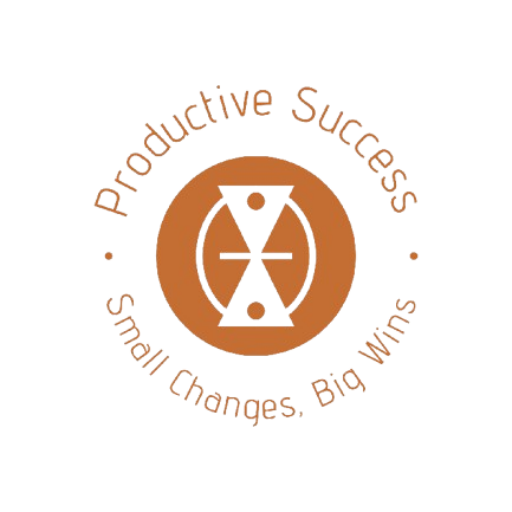Introduction
Creating positive habits helped me develop a successful productivity mindset, and I know for a fact it’ll help everyone reading this develop a successful mindset. When I say habits changed my life, I mean it
We’re going to the discuss the four main facets of building daily habits to fuel a successful productivity mindset. Building micro habits to create massive impacts, staying positive throughout this journey, using trackers to track our progress, and finally overcoming resistance.

Building Micro-Habits: Small Changes, Big Impact
Micro-Habits are small changes in your behavior that lead to long term improvements in productivity. Micro-habits will improve your productivity the most due to how easy and simple they are to do. Some examples of micro-habits include drinking water after waking up, journaling for 5 minutes every day, and meditating for a minute a day
While these tasks might seem to be so simple they don’t matter, however, the point is that they are simple. They are so simple, in fact, that anyone can pick them up and consistently do them. The whole point of these micro-habits is to build consistency, so that when you get to the major habits, you can stick on to them
Now, how do we develop some micro-habits for the different areas of life. Let’s take fitness as an example, I want to workout consistently at the gym or at home. So, in order to consider myself to have worked out one day, I will make it so that I just need to do 5 push ups.
This makes it really easy for me to work out since I literally just need to do 5 push ups and I’m done for the day. Naturally, after the five push ups, you’ll usually want to do more, but the bar being so low allows you to just start the action instead of putting it off.

The Power of Positive Reinforcement in Daily Productivity
In my opinion, positive reinforcement is the most difficult part of creating a successful productivity mindset. Especially since most of our minds have been so hard wired to be negative. Even though we might feel negative thoughts, that doesn’t mean we can’t have positive reinforcement
Positive reinforcement is a concept found in Atomic Habits of associating certain behaviors with rewards upon completion. For example, if I work out today, I am allowed to have one cookie. Associating cravings with your micro-habits will boost repetition and make you much more likely to do them again and again.
Some examples of these productive actions for positive reinforcement could be self praise, having a little snack, or celebrating your small wins with someone else. It doesn’t matter specifically what you associate with your habit as long as it’s not detrimental, and it’s small.
Positive Reinforcement Example
Using the fitness example again, I could associate working out with being allowed to watch my favorite Netflix show afterwards. Now, I’m motivated to workout every chance I get because after working out I’m allowed to watch Netflix
After some time, you’ll build momentum in working out and the immediate rewards won’t matter at all. The main important thing will be that you worked out, and what comes after won’t matter
Over-Rewarding is the biggest problem people encounter with positive reinforcement. For example, if I said every time I worked out I could eat a whole cake after, then I won’t ever progress past the 5 push ups. I mean, why would I? I’m guaranteed cake after and my cravings would be so strong I wouldn’t even care about the push ups.
The most important piece of advice I can give you is to make it numerical in order to keep track of the difference between a big reward, and a small reward. For example, I track my small rewards by making sure that at most, they would take 15 minutes to do.
This helps keep my rewards small enough that they won’t overshadow the habits.

Tracking Progress: Tools to Measure Habit Success
Studies show that the best way to motivate yourself is with progress. Think about it, motivation comes through seeing progress. Not by watching some motivation videos on YouTube, not that they’re not a bit useful sometimes.
Atomic Habits mentions habit trackers as the most effective way to track habits. Simply put, you just get a piece of paper and write down your habits at the top. Then, on the sides, you write about a month’s worth of dates.
Whenever you complete a habit, you check off the box. If you don’t complete the box, you can X it out or leave it blank. You’ll want to track your streaks of habits, in order to see your consistency. As I said earlier, progress is the best motivator of them all and habit trackers are a perfect way to see progress.
I would also recommend to keep the habit tracker in front of you. At least for me, throughout the day, I need a constant reminder to do my habits. Therefore, having it in front of me reminds me that I have to accomplish all of these habits today
Everything I’ve mentioned so far is key for building a successful productivity mindset.

Overcoming Resistance: How to Push Through Slumps
Slumps are the most misunderstood enemies of productivity. Obviously, no one wants to be in a slump/rut, and we should avoid them. However, I believe that slumps help us realize that we’re not perfect, and that helps us grow
The most common types of resistance is procrastination, self-doubt, and fatigue, which I guarantee you every single person the Earth has been through. We all know how they effect out productivity by making us lazy and complacent. It feels like no one knows how to overcome these resistances though
Let’s go back to the fitness example just one more time. If I’m too tired to workout, having a fitness buddy might benefit me. Or, in other words, an accountability partner. Someone who will push me to do better whether or not I feel like it
Some other strategies, not including accountability partners, consist of shifting your environment, breaking tasks into smaller steps, or taking breaks often in order to avoid burnout. Whatever resistance is thrown your away, there’s at least10 tasks you can do that’ll help you overcome it.
The Most Important Part of a Successful Productivity Mindset: Discipline
The definition of discipline is doing the hard work when you don’t feel like. It’s doing the beneficial things whether or not you want to. In my opinion, the most important thing you’ll learn in this journey is the skill of discipline. With every rut you overcome, your discipline stat goes up a little bit.
Eventually, the most discipline you exert, the higher your stat goes. You’ll have a top 1% discipline within 2 months because realistically, most people have zero discipline. They don’t work hard, they need motivation to work, and have no ambition to keep moving forward. I guarantee you within 2 month’s you’ll be more disciplined than all of your friends.
The most important thing to remember is that this journey takes time. Building a successful productivity mindset cannot be done in one day, so remember to always be self compassionate. Remember that when you encounter resistance, it doesn’t make you any worse of a person. Everyone encounters resistance, and by overcoming it you’ll grow and build important traits for the future.
With every obstacle you overcome, a harder one stands behind it. However, the more obstacles you overcome, the easier it is to overcome.

Conclusion
Building daily habits is the most important part of building a successful productivity mindset. Especially since these habits will compound, and you’ll keep making progress to track them. Remember, progress is the most motivating effect on your life. The progress will lead to setbacks, and with every setback you overcome, you build discipline.
The more discipline you build, the stronger you become. Comment down below one micro-habit you’re planning to do. A lot of these concepts can be found in Atomic Habits, so you should check it out here. Remember my favorite saying before you leave
Nothing changes if nothing changes



